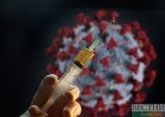The number of coronavirus cases is rising in Armenia. New cases appear every day, the number of which has already exceeded 1100. The government has extended the state of emergency until May 14, thereby confirming that the outbreak is not controlled in the country. There's been a lot of complaints recently about its health system.
In order to prevent public outcry, the Armenian political elite has begun pursuing a non-standard policy by integrating a set of anti-coronavirus measures into the country's ideology. One of the pillars of Armenian ideology is the idea of people's constant struggle against the threat in the face of invaders, gentiles and foreigners, who most often were their neighbors, according to the Armenian political strategists. This ideology corresponds to Yerevan's foreign policy, which is limited to observing exclusively national interests to the detriment of regional ones.
However, the COVID-19 threat cannot be personified, therefore, an alternative view of the pandemic problem is formed in Armenia, which does not imply criticism of the authorities. Last Tuesday, Armenian President Armen Sarkisyan, in an appeal to the nation, called on the Armenians around the globe to rally in front of a faceless danger, comparing this struggle with the elimination of the tragic consequences of the Spitak earthquake, as well as the Nagorno-Karabakh war. At the same time, Sarkisyan did not specify that the entire Soviet Union provided assistance to the Armenian SSR in 1988, and the results of the occupation policy of Armenian separatism in Nagorno-Karabakh are criticized throughout the world.
The fight against the virus is to look like another challenge that will be overcome through national unity. The public should not ask uncomfortable questions related to national health problems. However, they have questions and one of them is what the country's government and numerous officials are doing now. The question is not accidental, since in the current crisis period, the Armenian authorities did not think of anything else but to ensure the safety of the population using self-isolation tool, through its property (apartments and private houses), which is subject to state tax.
Despite the outbreak, political strategists do not miss a PR opportunity. On his Facebook page, Prime Minister Nikol Pashinyan publishes materials every day on parliament’s work, his campaign work during the 'velvet revolution', assures the public that all medical facilities in the country are provided with the necessary medicines and personal protective equipment. Despite the moderation of comments, active users of social networks pay attention to the fact that the prime minister seeks to convince the public that the situation in the country is not critical, despite the fact that all evidence to the contrary.
People are worried about the financial situation in Armenia, since the country's economy is paralyzed, people do not work, but they still have to pay housing costs, monthly rental fee and other expenses. Moreover, both Pashinyan and Sarkisyan say nothing about material assistance to the population, limiting themselves to modest calls to extend a helping hand to the most vulnerable groups - the elderly and chronic patients. The atmosphere of uncertainty leads to anxiety, no one provides forecasts, while people fear the second wave of the epidemic, since the geography of the outbreak in Armenia is unknown, and the possibility of independent testing for coronavirus is not even discussed.
The public suggests that Armenian politicians' loud calls for universal transnational mobilization cover their unwillingness to provide real financial assistance to the population. Armenian business oligarchs are also not in a hurry to provide direct assistance to the population, limiting themselves to behind-the-scenes and non-transparent cooperation with various support funds. Some wealthy people open some private clinics in their homes, equipping them, first of all, with ventilators.
There are not enough funds to fight the virus. Moreover, the deficit is also expected after the state of emergency is lifted, when the threat of a pandemic will be over. Therefore, the Armenian establishment has begun cautiously speaking about the national character of the fight against the epidemic, hoping to receive financial support from the diaspora once again, since it does not require testing during a pandemic. This serves to maintain the government's image and suggests the successful consolidation of the ethnic group.







